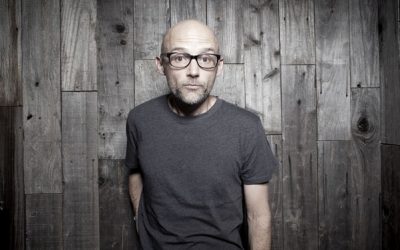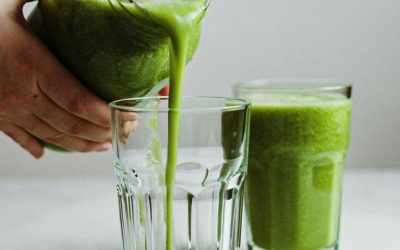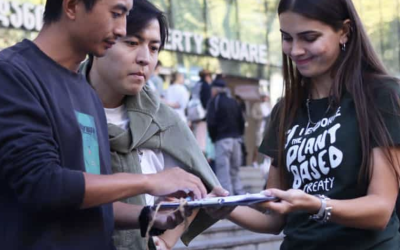Blog
Animal activism and work for a plant-based transition in the Netherlands
June 26, 2024
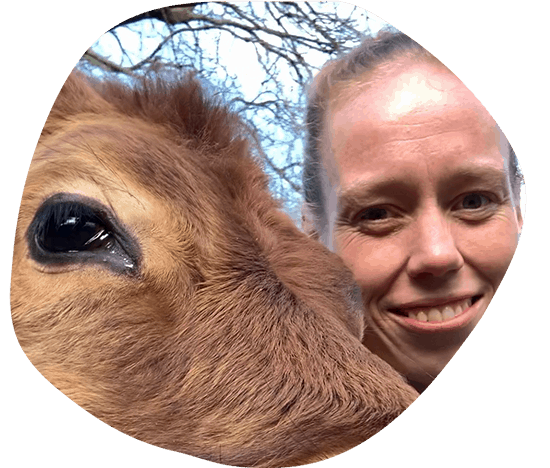
Lea Goodett is a local organizer in the Netherlands and Regional Liaison in Europe for Animal Save Movement, and a campaigner for Plant Based Treaty. In February, Amsterdam was the first capital city in the EU to endorse the treaty. With enthusiasm and creative ideas, they are working towards a plant-based transition in the Netherlands.
Lea Goodett had worked as a nurse for several years and was running her own practice as a diet coach for athletes. One day scrolling on Instagram, she saw videos from the dairy and egg industry. It changed her life.
“In that instant, it all clicked. Suddenly I made the connection. I was heartbroken. I was looking at my leather shoes and for the first time, I saw a dead cow.”
For weeks, the world did not feel real. Going into the supermarket, she saw dead bodies everywhere. Her new insights led her to search for activism and things she could do to help the animals. As a vegan, she wanted to do more than abstain from eating animal products.
“In the beginning, I was really scared because I was afraid that people would shout at me. I’m not really the activist person out there, I prefer to be a bit in the background. But the suffering of the animals made me feel that I needed to do something.”
Looking back, Lea describes how she was angry most of the time, but this anger slowly turned into more compassion and patience with people. Her own dad went vegan at 67 after seeing her photographs from vigils. “I do think that love wins. It can have a ripple effect and make the world better.”

A vigil in 2022. Lea and other activists offered water to pigs in slaughterhouse trucks during a heatwave.
Vegan Food Truck

Plant Based Treaty’s free food truck outside a UN climate conference, which served 2,000 people.
Today, Lea is one of the European Regional Liaisons for Animal Save Movement and a campaigner for Plant Based Treaty. She emphasizes that the creative part of her work, in combination with activism, is something she really loves.
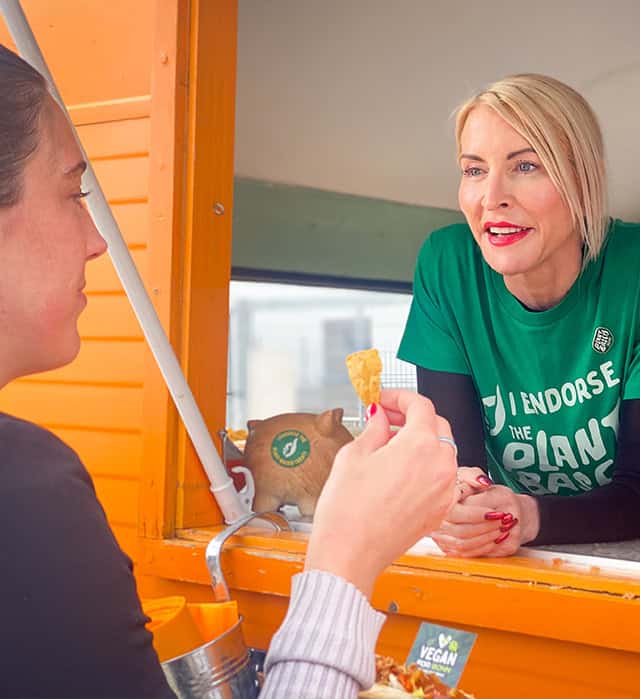
Heather Mills joined Lea and her team at the 2024 UN Bonn Climate Conference.
“Having a food truck came up as a random idea. A study showed that when people have something vegan in their hands, they are more receptive to the idea of veganism. It really resonated with us.”
Today their food truck is famous in the area, and they are able to reach thousands of people. It has also been to the annual UN Climate Change Conference in Bonn, Germany, serving two thousand people vegan hotdogs. There they had the opportunity to talk with people they do not usually reach.
“Working with the food truck is so much fun, and a great opportunity to talk about veganism. It really brings us joy,” she says.
Vigils
“For many activists, there will come a time when you just want to attend a vigil. For me it was a very clear moment when I thought I needed to see this. Not just on the screen, but in real life.”
Lea recalls her first vigil and seeing all the trucks and all the faces. The scale of it horrified her.
“I stood there and thought: “Oh, my God”. It was the same feeling as when I went vegan. It all came over me again. How could we let this happen?”
She connected with one of the pigs and they looked into each other’s eyes.
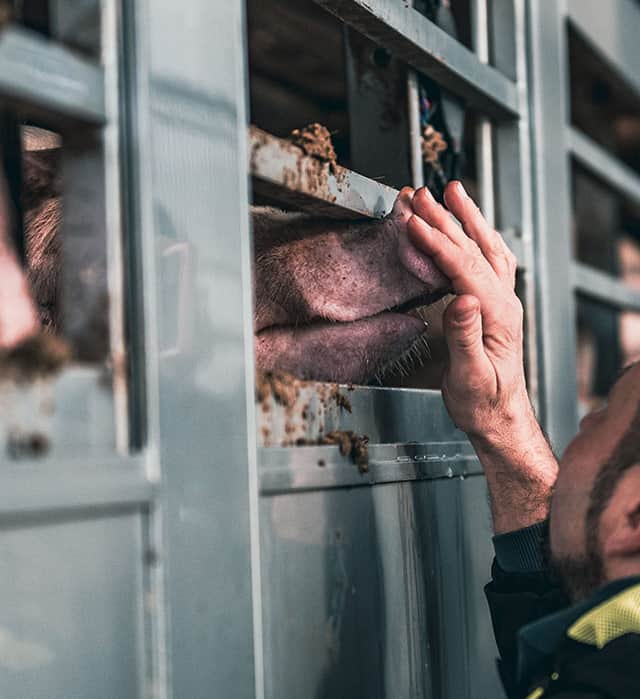
Activists bear witness and offer compassion to pigs in their last moments outside the slaughterhouse.
“You know that they know, and I know that they know that I care. It was horrible. It was not even sadness in the eyes of the pig. She had just given up. At that moment I promised her that I will do everything in my power to fight for them.”
She thinks that vigils clearly show how each animal is an individual. One is curious, one is shy, some are scared, others have given up. Many people attending vigils in the Netherlands are there for the first time. Animal Save Netherlands uses different strategies to connect with others such as documentary screenings, tabling events, meeting people through their food truck, and working with influencers.
“When influencers started to come to our actions, our vigils suddenly grew big on social media. It started with one of the biggest vegan influencers coming to a vigil, and then others wanted to follow. This made it easier to reach out to people and we have new people on our list continuously. Our vigils are always busy after a big influencer has shared pictures on social media.”
Agreements with slaughterhouses
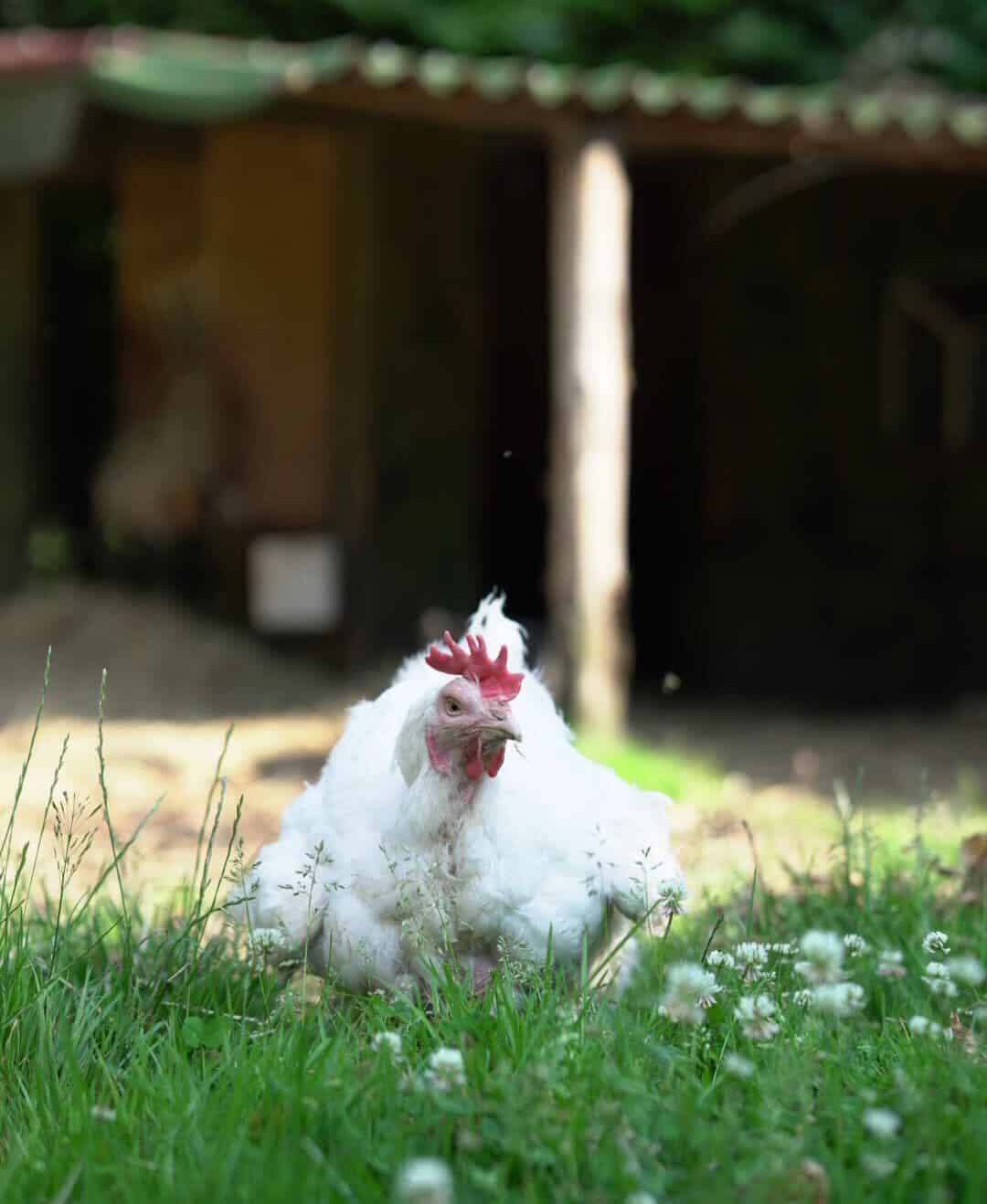
10 chickens were rescued from slaughter in memory of Regan Russell.
Today, Animal Save Netherlands has agreements with most slaughterhouses for their vigils, the exception being those that kill calves.
“And I understand why. They don’t want people to see the calves. They know that if we get that footage out, people will find it horrible. It does something to people, to see these little babies, and it will make people angry. The trucks with calves are therefore totally closed. That is not the case with the cow trucks.”
They go to calf slaughterhouses anyway, but there is no possibility to interact with the animals. She thinks that the industry wants to hide the connection between dairy and the calves, and how interlinked the dairy industry is with slaughter.
A few years ago on World Chicken Day, the workers surrendered two chickens to the activists. These were the first two of many. Now, they are able to rescue six chickens every time they attend!
“A worker said to us; “We can give them to you, but you have to make sure that they go to a good place”. At that moment this man did not think about all the millions of chickens slaughtered every year inside that very slaughterhouse, but about these two in the box he wanted to have a good life. He suddenly saw them as individuals, not just numbers.”
The agreements they have established with the slaughterhouses started with Lea reaching out via email to suggest that they meet and introduce themselves. “The relationship went from there, in a very respectful and friendly way. We developed a bond with these people, even if we clearly have very different standpoints. One of the workers only eats meat twice a week now. We need to talk to these people if we want to change the system, I think.”
Plant Based Treaty Netherlands
Amsterdam was the first capital in the EU to endorse the Plant Based Treaty at the beginning of February 2024. The endorsement came about thanks to committed residents and an enthusiastic Plant Based Treaty team that, together with the municipality, made it happen.
“Amsterdam was a city we really targeted for a long time. We went there, held food tastings and events. We did a lot in the city encouraging people to reach out to local city councilors asking for endorsements.”
The response was positive, and dozens of people emailed their councilors, asking for the city to endorse.
“It is how it got the councilors’ attention”, Lea says. “Every now and then they get these emails from people about endorsing a call for a Plant based Treaty.”
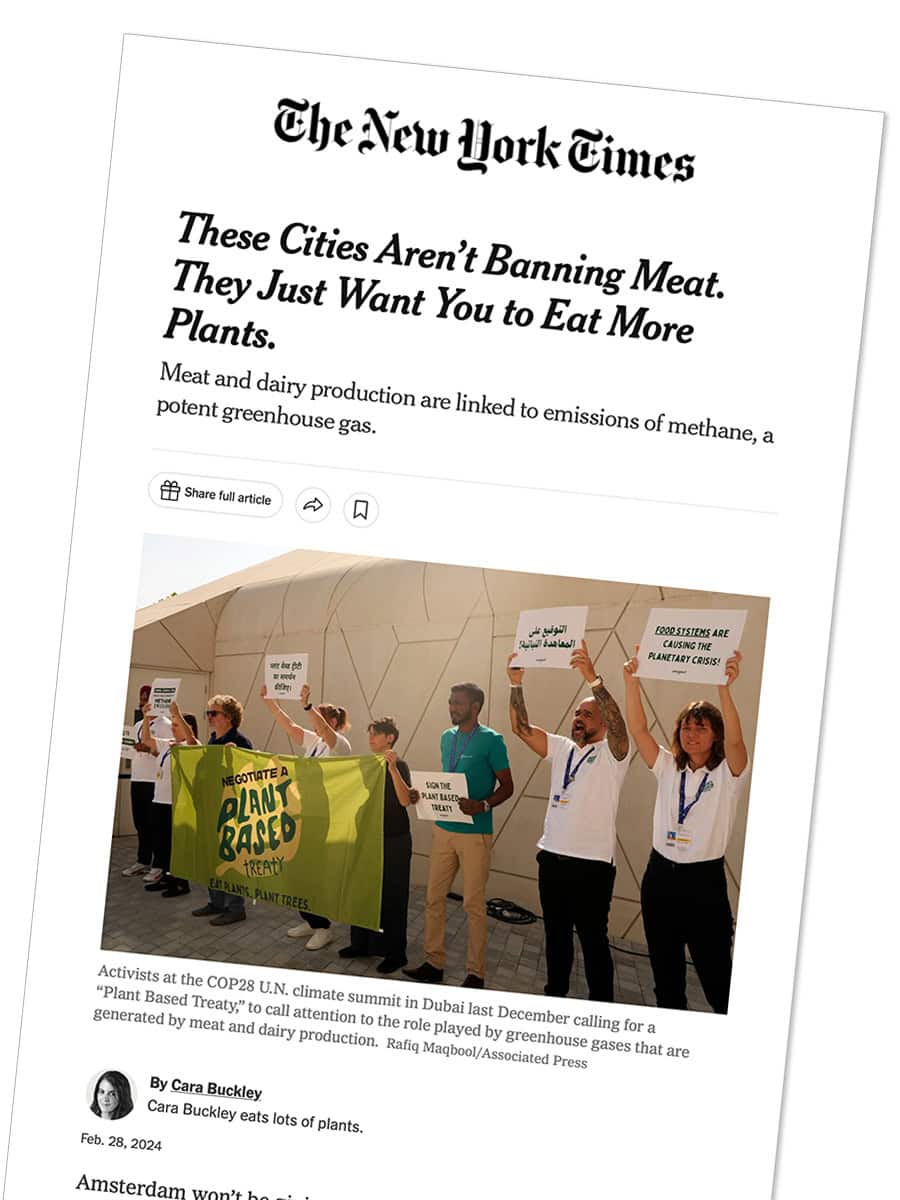
The New York Times article covering the announcement that Amsterdam endorsed the Plant Based Treaty
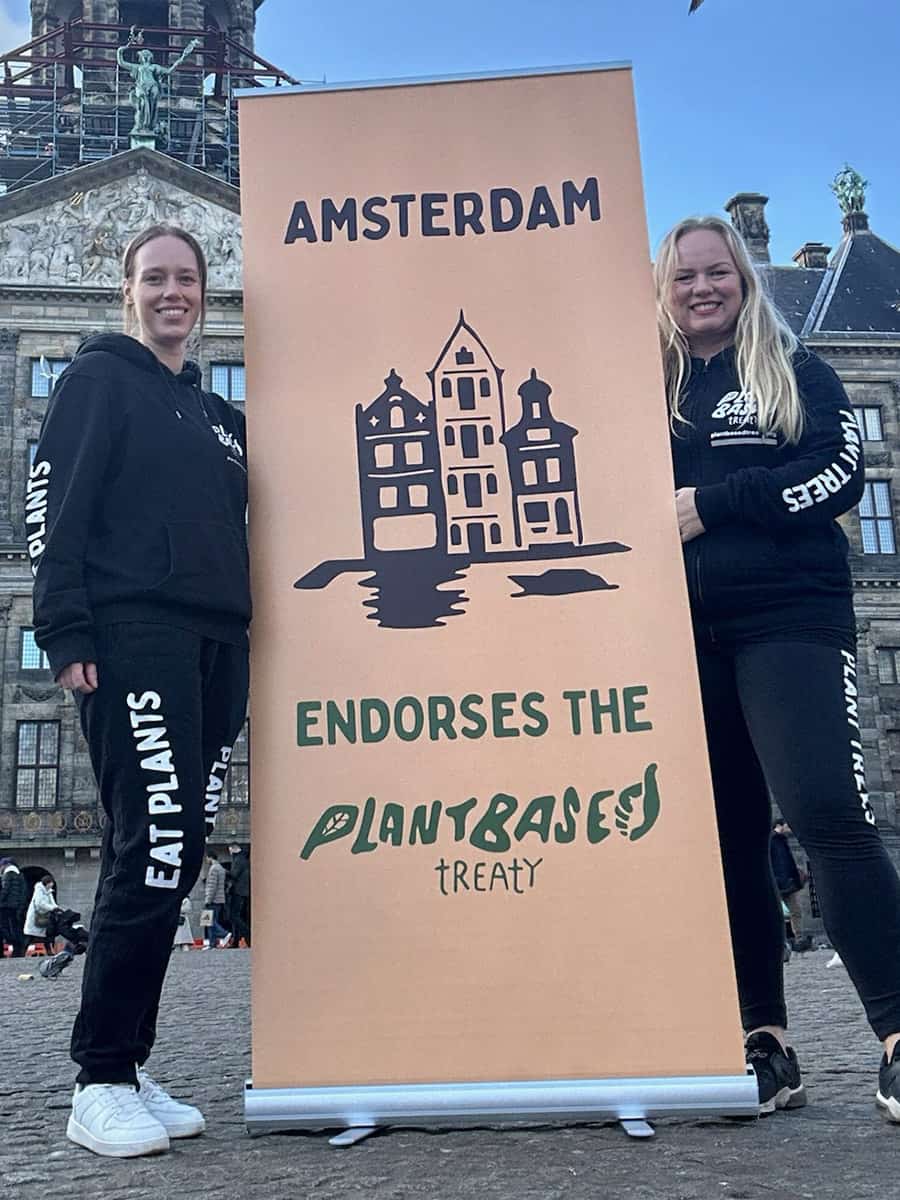
Lea and Lisette celebrate Amsterdam endorsing the Plant Based Treaty.
The campaign is building pressure from the bottom up by asking residents to send their councilors emails. After the email campaign had been running for several months, the Plant Based Treaty team reached out to the Amsterdam council and received a reply from the Sustainability Department. They wanted to meet and learn more.
“Immediately they were really interested. I thought you would need thousands or at least hundreds of emails to be able to make an impact. But we saw that it is more about targeting a council that really reads the letter, thinks that it makes sense, and decides to bring it forward on the agenda.”
The campaign shows that local communities can change the narrative. The Plant Based Treaty team in the Netherlands can also see the ripple effect it has had. Around 60 councilors have already endorsed the treaty in the Netherlands, and more and more are curious.
“Now that Amsterdam has endorsed, we are going to try again with cities who previously have rejected us. We have learned from other countries that sometimes you need to try many times. And we can see Amsterdam already inspiring other cities in the Netherlands to endorse the treaty.”
The endorsement has gotten a lot of attention from around the world.
“The New York Times reached out to the city council of Amsterdam and around fifty international newspapers have shown a lot of interest, and written about it,” Lea says.
She is sure they will get other cities on board and that Amsterdam will inspire other capitals.
“This is the beauty of the Plant Based Treaty. A grassroots initiative has developed into a really successful campaign where anyone can have an impact. You basically don’t need a whole lot of experience. You just need a team that is enthusiastic. The Plant Based Treaty in the Netherlands is quite small, yet still we got these results. It means everybody can do it.”
How you can take action:
-> Email your City representitative and ask them to Endorse the Plant Based Treaty
-> Join a PBT City Team in your area
-> Watch our trainings & webinars to learn more about how to speak to Councils, get your University to go plant based, and much more
-> Sign the Plant Based Treaty as an individual, organization, business or city.
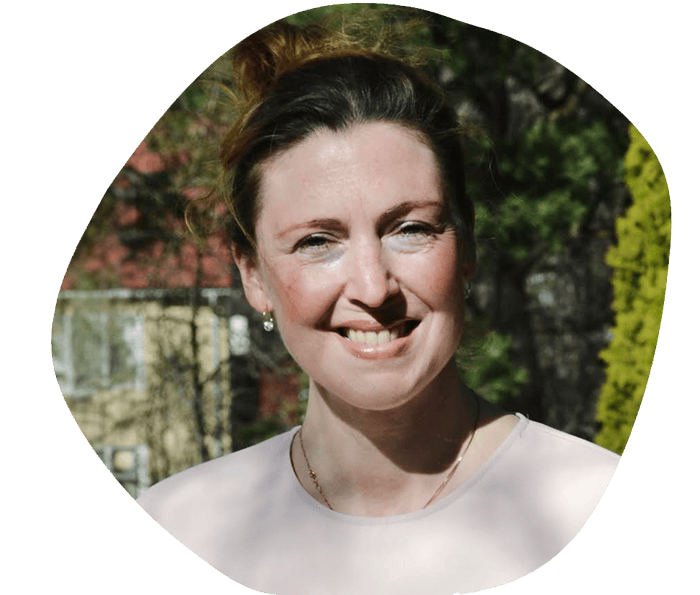
Anne Casparsson is a writer and ethicist, who has worked with communication and journalism in different capacities, for more than twenty years. She writes about animal rights, veganism, sustainability, justice, and peace related issues. Anne is based in Stockholm where she lives with her family. She is a dedicated voice for the animals.

Anne Casparsson is a writer and ethicist, who has worked with communication and journalism in different capacities, for more than twenty years. She writes about animal rights, veganism, sustainability, justice, and peace related issues. Anne is based in Stockholm where she lives with her family. She is a dedicated voice for the animals.
More from the blog
Ten Plant Based Treaty Celebrity Endorsers Making A Difference
By Miriam Porter
Kickstart Spring With A Nourishing Green Smoothie By Dr. Brooke Goldner
By Miriam Porter
From Global Advocacy To Menu Changes: Plant Based Treaty’s Goals For 2025
By Miriam Porter

